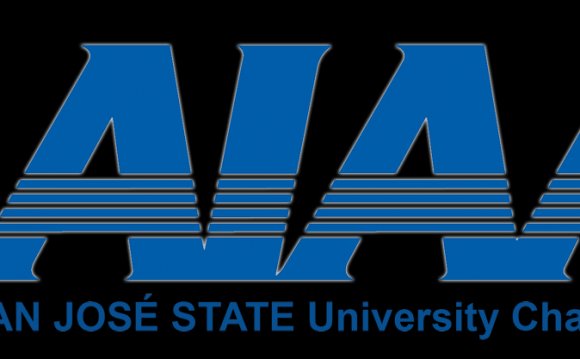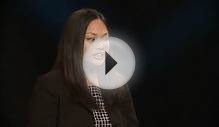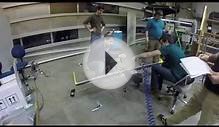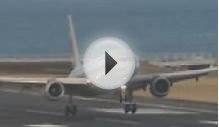
| Professional Organization | |
| Origins | Merger of the American Rocket Society and the Institute of the Aerospace Sciences |
|---|---|
|
Area served |
Worldwide |
| Method | Industry standards, Conferences, Publications |
|
Members |
30, 000 |
|
Key people |
Sandra Magnus (Executive Director) |
|
Revenue |
$ 21 millions (2009) |
| "Shaping the Future of Aerospace" | |
| "to address the professional needs and interests of the past, current, and future aerospace workforce and to advance the state of aerospace science, engineering, technology, operations, and policy to benefit our global society." | |
| Website | |
The (AIAA) is the professional society for the field of aerospace engineering. The AIAA was founded in 1963 from the merger of two earlier societies: the (ARS), founded in 1930 as the American Interplanetary Society (AIS), and the Institute of the Aerospace Sciences (IAS), founded in 1932 as the Institute of the Aeronautical Sciences.
AIAA is the U.S. representative on the International Astronautical Federation and the International Council of the Aeronautical Sciences. As of 2015, AIAA has more than 30, 000 members. Despite its name, the society has members among aerospace professionals worldwide, although the majority are American and/or live in the United States. Some AIAA seminars and conventions are restricted to U.S. citizens, due to security issues.
AIAA is split into seven regions: North-East, South-East, Central, South-Central, Mid-West, West, and International. The regions are subdivided into Sections, usually based in major cities. Universities with programs in aerospace engineering or related fields may form Student Branches, which are overseen and in part funded by their parent Section.
Another aspect of AIAA is their standards writing activities. In the past, AIAA standards for aeronautics have been incorporated into broader standards and public laws. These standards help transition innovative aeronautical ideas to everyday usage.
Journals[edit]
As a major activity AIAA currently publishes several technical journals. The is published on a monthly basis and serves as the flagship journal of the society. In January 2015 the Journal of Guidance, Control, and Dynamics became the second AIAA journal published on a monthly basis. The other journals are published bi-monthly and have more specialized topics:
- Journal of Air Transportation (Starting in 2016)
- Journal of Aerospace Information Systems (formerly Journal of Aerospace Computing, Information, and Communication)
- Journal of Aircraft
- Journal of Energy (published from 1977 to 1983)
- Journal of Hydronautics (published from 1967 to 1980)
- Journal of Propulsion and Power
- Journal of Spacecraft and Rockets
- Journal of Thermophysics and Heat Transfer
AIAA's flagship magazine, Aerospace America is distributed monthly to all members, and is published online in digital format. AIAA also produces several series of technical books ranging from education to progress in advanced research topics. One of the other important contributions of these Journals is review and survey papers by experts. Review and survey papers are written by those who have conducted extensive research for decades.
Each morning, AIAA distributes a comprehensive aerospace industry news briefing, called the AIAA Daily Launch, to its membership.
The AIAA Foundation[edit]
AIAA formed the AIAA Foundation to devote more attention and more resources to the education of both practicing and future aerospace professionals.
Specifically, the Foundation funds programs including assistance, research, and professional societies that recognize the outstanding individual contributions of educators and students provides additional educational services to aerospace professionals. The AIAA Foundation funds numerous scholarships for both undergraduate and graduate students. Undergraduate scholarships range from $2, 000 to $2, 500. Graduate scholarships are $5, 000 or $10, 000.
Student branches[edit]
AIAA has recognized that the U.S. aerospace industry is facing a rapidly aging workforce, and recently has begun pushing to recruit new students to the field. Student Branches tend to be on the front lines of this task, with many Sections offering funding or incentives for their Student Branches to increase membership. AIAA currently has over 6, 500 student members.
AIAA currently has over 160 active student branches, including 12 foreign student branches, with a total active membership of over 6, 500 students worldwide.
The student branches also host annual conferences in each of its nine branches. AIAA Student Conference site All the conferences vary in character from one another, but essentially their purpose is to provide a forum for AIAA Student Members at colleges and universities within the region to present technical papers in public competition. Cash prizes of US$500, US$300 and US$250 are awarded for 1st, 2nd, and 3rd place prizes in the undergraduate and graduate (masters candidates only) categories. The conferences serve to indoctrinate students into the practice of presenting technical work at AIAA meetings.
The fundamental objective of AIAA Regional Student Conferences is to provide student members with an educational experience that prepares them for their future as practicing aerospace engineers. Although regional conferences vary in character, students attend and present technical work as they would at a professional AIAA meeting. In addition, they establish professional relationships, learn from others, and hone their communication skills. Their work, both written and oral, is evaluated by professional members serving as judges, with the primary intent of providing substantial feedback on the quality of their work. The highest scoring papers are also recognized with awards and prize money.
Any AIAA member, student or professional, is invited to participate in a conference. Only undergraduate and Masters’ level student papers are accepted for competition. Ph.D. student papers are NOT eligible to compete for awards or prize money. Their work may be presented for review only; it would be more appropriate for them to present at AIAA professional technical meetings.
RELATED VIDEO












